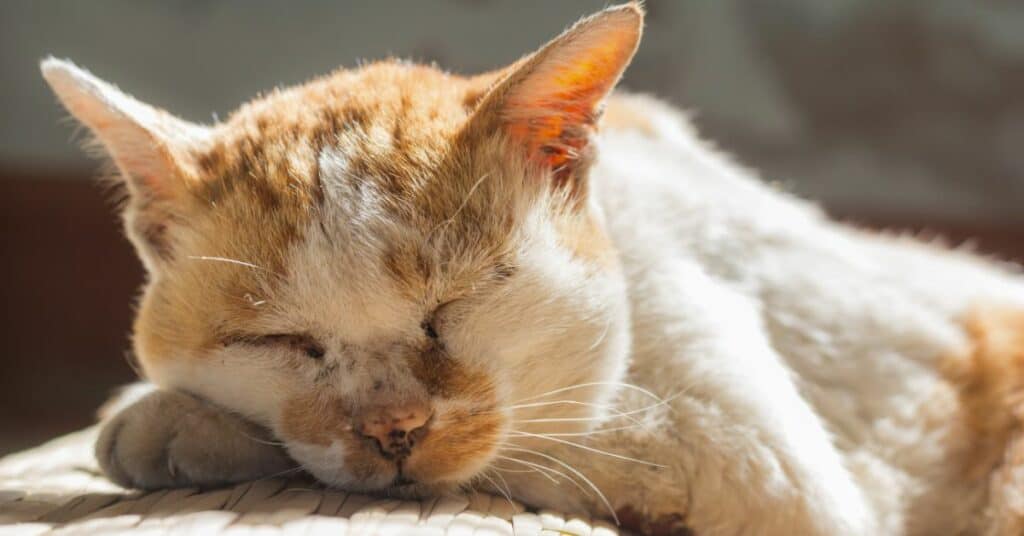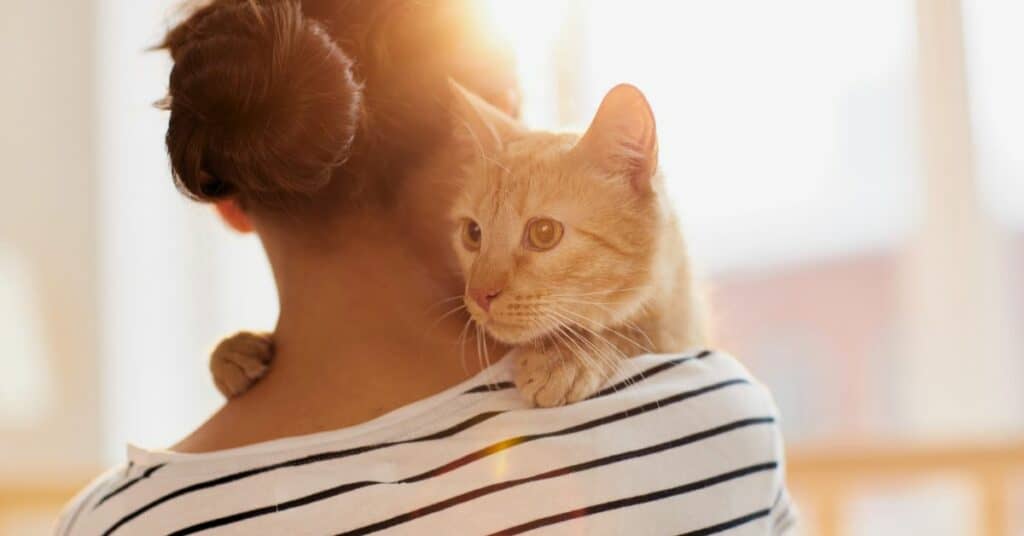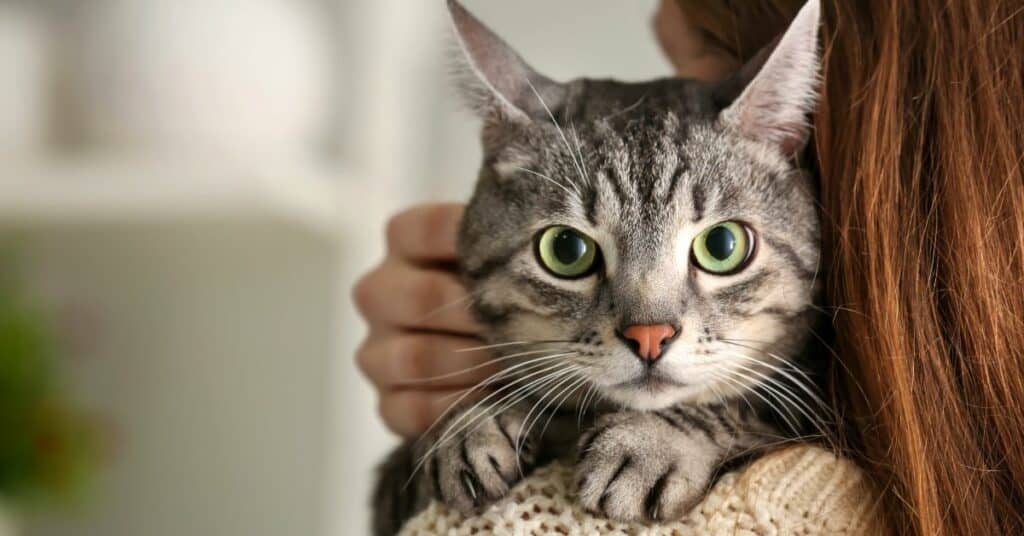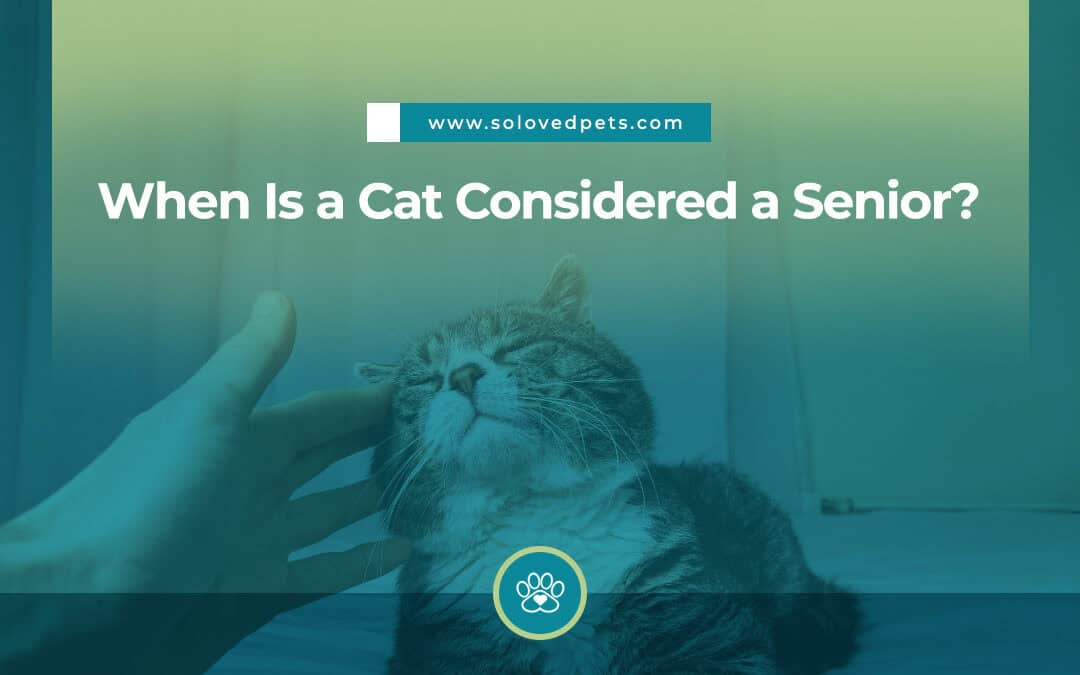As your feline friend ages, you might find yourself wondering when they officially cross into their senior years. It’s not just about a number—it’s about recognizing the subtle changes in behavior, energy levels, and health that come with aging. We want to make sure our cats live the happiest, healthiest lives possible, and understanding when they’re considered senior is a big part of that.
By knowing what to look for and how to support them during this stage, you can help your cat enjoy their golden years with grace and comfort. So, let’s explore when your cat becomes a senior and what that means for their care.
When Are Older Cats Considered Seniors?
As a loving pet parent, you’ve probably noticed some changes in your feline companion as the years go by. But when is a cat considered a senior?
Most cat owners start to think about this around the time their cat begins to slow down, but the truth is, aging in cats happens at different rates, and many cats may not show clear signs of aging until they’re well into their later years.
Understanding when a cat is considered a senior can help you provide the best care possible, ensuring your senior cat stays happy and healthy for as long as possible.

Age Milestones
Understanding how cat age compares to human age is key to providing the best care for your feline friend as they transition into their senior years. Most cat owners begin to notice that their cats tend to slow down and exhibit signs of aging around the age of 7 or 8.
Generally, a cat is considered a senior when they reach around 11 to 12 years old, equivalent to roughly 60 human years.
To convert cat age to an equivalent human age, an accepted method is:
- 15 human years for the first year of a cat’s life
- 10 human years for the second year of the cat’s life
- Add 4 human years for every cat year after the second year
This means that by year two, a cat has matured to about the same as a 25 year old human.
But it’s not just about the number. Recognizing a senior cat’s age is about recognizing the subtle and not-so-subtle changes that begin to occur as your cat ages. Cats develop age differently. Some show signs of aging earlier, while others remain spry and playful well into their senior cat years.
Just like with humans, genetics, lifestyle, and overall cat’s health play significant roles in how a cat ages.
Physical and Behavioral Changes in Senior Cats
As cats age, you might notice physical changes such as a decrease in their activity level, weight gain or unintentional weight loss, and changes in their fur, which might become matted or oily.
Senior cats also tend to experience dental issues, which can cause significant pain and affect their ability to eat. Regular vet visits are crucial to catching potential or emerging issues early, like kidney disease or heart conditions, which are common in older cats.
You might also observe behavioral changes, such as excessive meowing, hiding, or even signs of mental confusion, sometimes referred to as feline senility. These changes can affect your cat’s mood and overall well-being.

Adapting to Your Senior Cat’s Needs
As your cat ages, their needs will change, and it’s important to adjust your care routine accordingly. Providing geriatric care geared toward their specific needs can help keep them comfortable and happy.
This might include:
- Switching to senior cat food that’s easier on their digestive system
- Ensuring they have easy access to litter boxes
- Offering mental and physical stimulation to keep their minds sharp.
- Providing regular grooming to prevent painful hair matting, especially as your senior cat may not be able to groom as effectively.
- Paying close attention to their food and water bowls, ensuring they’re easy for your cat to reach.
Keep an eye out for signs of aging, like changes in their elimination habits, which could indicate health issues like kidney failure or degenerative joint disease.
The Importance of Regular Vet Care
Regular vet care becomes even more important as your cat ages. A senior cat’s body is more susceptible to medical conditions that may not have been a concern in their younger years.
Early detection of issues can make a significant difference in your cat’s quality of life. Vets can help you detect illnesses such as:
- Dental disease
- Kidney and heart disease
- Degenerative joint disease
Your vet can also help you manage your senior cat’s diet, ensuring they get the nutrition they need without gaining excess weight or losing too much.
As your aging cat enters their senior years, maintaining their health and comfort through regular vet visits and attentive care will help them continue to live a full and happy life.

Contact us today at So Loved Pets to learn more about how we can support you. When the time comes to say goodbye, we can help you create a meaningful farewell for your cherished companion.
Recognizing the Signs of Aging
One of the challenges of caring for an aging pet is recognizing the signs of aging and distinguishing them from normal behavior. Cats are masters at hiding illness, so it’s up to you to stay vigilant.
- Pay attention to changes in your cat’s ability to jump, climb, or even groom themselves.
- Watch for any signs of significant pain, such as limping or reluctance to move.
- Keep an eye on their weight, as both weight gain and unintentional weight loss can indicate underlying health problems.
- Behavioral changes, such as increased irritability or cognitive issues, should also be monitored closely.
In conclusion, understanding when a cat is considered a senior and recognizing the age-related physical changes that come with it are essential for keeping your feline companion healthy and happy.
By staying attentive to your senior cat’s needs and providing the appropriate care, you can help them navigate their golden years with the comfort and love they deserve.
How Do You Know When You Have a Senior Cat? 12 Signs to Guide You
When is a cat considered a senior? Knowing the signscan help you provide the best care, ensuring your senior cat remains healthy and comfortable as they age.
Let’s look at the top 12 indicators that your cat has reached their golden years and what you can do to help keep your senior cat healthy.
1. Slower Movements and Reduced Activity
One of the first signs that your cat is aging is a noticeable slowdown in their movements. Older cats tend to become less active, preferring to lounge in their favorite spots rather than chase toys or climb to high perches.
This decrease in activity is natural as cats age, but it’s important to ensure they still get some exercise to keep their muscles and joints in good shape. If your senior cat is struggling with movement, they may be experiencing joint pain, which is common in geriatric cats.
2. Changes in Fur Condition
Have you noticed your older cat’s fur becoming matted or oily? Aging cats often struggle with grooming, leading to changes in the texture and cleanliness of their coat. A senior cat’s fur might look less sleek than it used to, and this can be a sign that they’re having difficulty reaching certain areas or are simply not as motivated to groom themselves.
Regular brushing can help keep your senior cat healthy and prevent painful matting.
3. Weight Gain or Loss
Weight changes are common in senior cats. You might notice your cat gaining weight as they become less active, or you could see unintentional weight loss, which can be a sign of underlying health issues like kidney disease or heart problems.
Monitoring your cat’s weight is crucial, as sudden changes can indicate that something isn’t right. Senior cats benefit from a diet tailored to their age and health needs, so consider switching to senior cat food if you notice any significant weight fluctuations.
4. Dental Disease and Oral Health Issues
Dental disease is a common issue in older cats, and it can cause significant pain if left untreated. Signs of dental problems include bad breath, difficulty eating, and visible tartar buildup on your cat’s teeth.
Regular vet visits are essential to keep your senior cat’s teeth and gums healthy. Addressing dental issues early can prevent more serious problems down the line.
5. Changes in Litter Box Habits
Aging cats may experience changes in their litter box habits. If your senior cat is eliminating outside the box, it could be due to joint pain, making it difficult for them to climb in and out. Or it could indicate a medical issue like kidney disease.
Providing easy access to litter boxes and ensuring they are clean and comfortable can help encourage proper use. If your cat suddenly stops using the litter box, a visit to the vet is in order to rule out any serious health concerns.
6. Behavioral Changes and Cognitive Issues
As cats age, you might notice behavioral changes or signs of cognitive issues, such as confusion, disorientation, or increased vocalization, like excessive meowing. These changes can be distressing, but they are common in elderly cats.
Providing mental stimulation through interactive toys and puzzles can help keep your cat’s mind sharp. If you notice significant changes in behavior, it’s important to discuss them with your vet.

7. Difficulty Climbing or Jumping
Senior cats often have difficulty with activities that require agility, such as climbing or jumping. This can be due to joint pain or stiffness, common issues in geriatric cats.
If your cat is struggling to reach their favorite perch or is hesitant to jump, it may be time to provide alternative ways for them to access high places, like pet stairs or ramps.
8. Changes in Appetite and Eating Habits
A senior cat’s appetite can change for various reasons, including dental pain, heart and kidney disease, or simply the natural aging process.
If your cat begins to eat less or more than usual, or if they start favoring soft or canned food over dry kibble, it’s worth investigating. Changes in eating habits as a senior cat ages can be an early sign of health issues, so keeping a close eye on your cat’s diet is important.
9. Increased Sleep and Less Interaction
As cats age, they tend to sleep more and may become less interested in interacting with their human family members. While it’s normal for older cats to enjoy their naps, a sudden increase in sleep or a decrease in social interaction could indicate that your cat isn’t feeling well.
Ensuring your senior cat has a comfortable, quiet place to rest is important, but so is continuing to engage them with gentle play and affection.
10. Grooming Less Frequently
Older cats may groom themselves less frequently, leading to matted or oily fur. This can be due to joint pain or simply a decrease in the energy required for grooming.
Regular grooming sessions with your cat can help prevent skin issues and keep their coat healthy. It also provides an opportunity to check for lumps, bumps, or other changes that might need veterinary attention.
11. Changes in Vocalization
A senior cat’s vocalization patterns may change as they age. You might notice more frequent meowing, particularly at night, which can be a sign of discomfort, cognitive issues, or a change in their environment.
Understanding these vocal changes and responding to them with patience and care can help reduce your cat’s anxiety and keep them feeling secure.

12. Increased Need for Vet Care
As your cat ages, regular vet visits become even more crucial. Senior cats are more prone to developing chronic conditions like kidney and heart disease, which require ongoing management.
Catching these issues early can significantly improve your cat’s quality of life. Your vet can help you tailor your cat’s care to their specific needs, whether that involves dietary changes, medication, or other treatments.
Recognizing these signs of aging in your cat can help you provide the best possible care as they enter their senior years. By staying attentive to their changing needs and adjusting your care routine accordingly, you can ensure your senior cat remains happy, healthy, and comfortable as they age gracefully.
So Loved Pets Is Here for Our Triangle Community
At So Loved Pets by Endswell, we understand the profound connection you share with your pet and the deep sense of loss that comes with saying goodbye. Pets are not just companions; they are family members who have enriched your life with unconditional love and loyalty.
We are here to ensure that your beloved pet’s final journey is treated with the care, compassion, and respect they deserve.
Comprehensive and Compassionate Pet After-Life Care
At So Loved Pets, we understand that every pet is unique, and so is the bond you share with them. That’s why we offer personalized pet after-life care services designed to honor the life and memory of your cherished companion.
Our commitment to eco-friendly practices is reflected in our modern cremation process, a gentle and environmentally conscious alternative to traditional cremation.
We prioritize transparency and compassion in all that we do, ensuring you have clear, upfront information and the support you need during this emotional time. Our team handles every aspect of the process with the utmost care, making sure your beloved pet receives the dignified treatment they deserve.
From beginning to end, we are here to help you create a meaningful and respectful farewell for your treasured companion.
Support Through Your Grief Journey
Losing a pet can be an incredibly emotional experience, and we are committed to being by your side as you navigate this difficult time. So Loved Pets offers a variety of grief support resources designed to help you process your feelings and find peace in the midst of loss.
Whether you seek comfort through our online articles, need one-on-one support, or simply wish to talk to someone who understands, we are here for you. We believe that honoring your pet’s memory is an essential part of healing, and we strive to provide the support you need throughout your grief journey.
A Trusted Part of the Triangle Community
Serving the communities of Hillsborough, Raleigh, Durham, Chapel Hill, and beyond, So Loved Pets is proud to be a trusted provider of pet after-life services in the Triangle.
Our commitment to excellence is reflected in everything we do, from our respectful handling of your pet to the personalized care we offer each family. We are deeply committed to ensuring that your pet’s final moments are marked by dignity and grace, providing you with peace of mind during a difficult time.
Remembering Your Pet With Love
Our urn gallery offers a deeply personal way to honor and remember your beloved pet. This specially designed space allows you to choose from a variety of beautifully crafted memorial items, including custom urns, keepsake jewelry, and other personalized tributes.
We thoughtfully select each piece to reflect the unique bond you shared with your pet, ensuring that their memory lives on in a meaningful and cherished way.
In addition, So Loved Pets also provides a range of other memorial selections, such as engraved plaques and photo frames, giving you the opportunity to create a lasting tribute that truly captures your pet’s spirit and the love you will always hold for them.
Why Choose So Loved Pets?
At So Loved Pets, our core values of transparency, eco-consciousness, and compassionate care guide everything we do.
We understand how important it is for you to have clear, upfront information during such an emotional time, which is why we prioritize cost transparency in all our services. You always know exactly what to expect, with no hidden fees, so you can focus on honoring your beloved pet without additional stress.
We also believe in protecting our planet, which is why we offer an eco-friendly modern cremation process. Our gentle, water-based cremation alternative to traditional cremation is an environmentally responsible choice, reflecting our commitment to sustainability.
At So Loved Pets, we’re here to support you with compassionate and personalized care, ensuring that every aspect of your pet’s final journey aligns with your values and wishes.
Always Here When You Need Us
We know that loss can come unexpectedly, and we are here for you whenever you need us. Our team is available to assist you with immediate after-life needs or help you plan ahead, ensuring that your pet’s final journey is exactly as you wish. We are committed to making this process as gentle and supportive as possible, guiding you through each step with care and compassion.
So Loved Pets by Endswell is dedicated to serving our Triangle community with the highest standards of pet after-life care. We are here to help you honor the life of your beloved pet with services that are as unique and special as the bond you shared.
Contact us today to learn more about how we can support you during this time, and let us help you create a meaningful farewell for your cherished companion.

